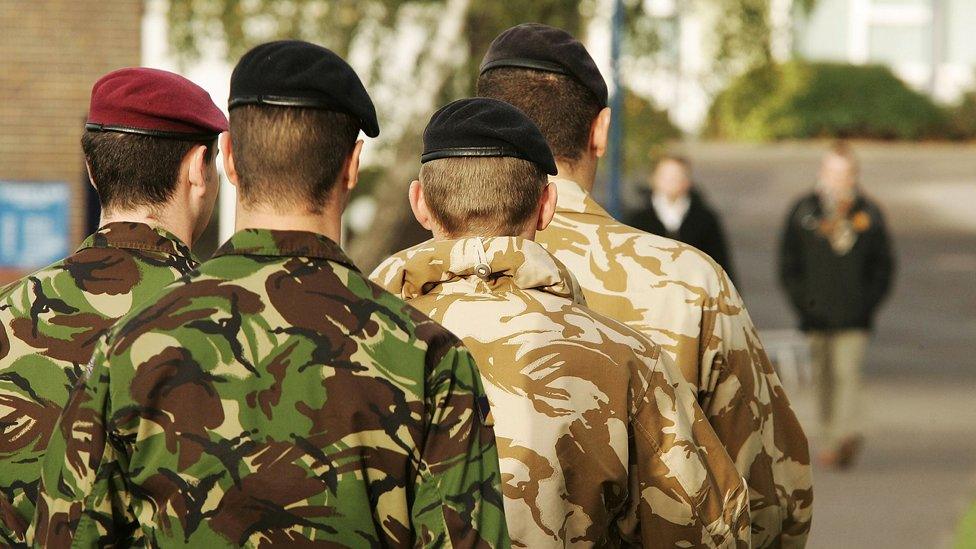Deepcut: Officer denies being 'violent regime' apologist
- Published
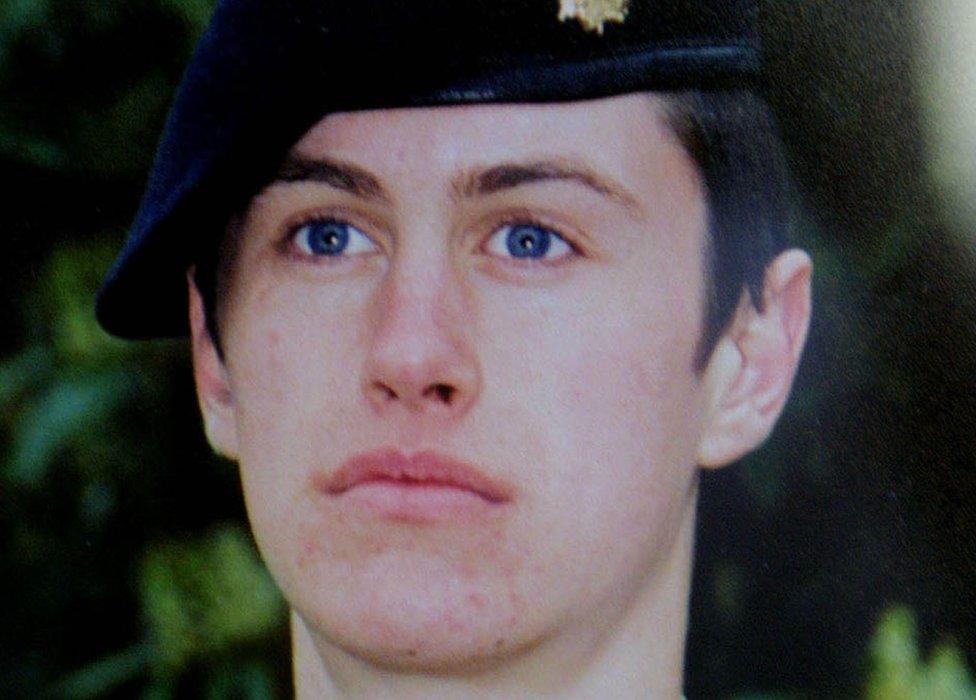
Pte Geoff Gray was found with two gunshot wounds to his head
A senior army officer has denied being an apologist for a regime of "violence, threats and intimidation" at Deepcut barracks.
Pte Geoff Gray, 17, was found with two gunshot wounds to his head at the Deepcut base in Surrey in September 2001 after he had been on guard duty.
Brig Christopher Coles told an inquest into his death that he was not "pushing" for a suicide verdict.
John Cooper QC, for the family, said a third party could have shot Pte Gray.
The teenager, who was from Seaham, County Durham, but grew up in Hackney, east London, was one of four young soldiers to die at the Princess Royal Barracks, between 1995 and 2002 amid claims of bullying and abuse.
Privates Sean Benton, 20, Cheryl James, 18, and James Collinson, 17, also died from gunshot wounds at the base.
The Army said Pte Gray killed himself, but in 2002 a coroner recorded an open verdict at the first inquest into his death.
On the second day of the new hearing at Woking Coroner's Court, Mr Cooper said: "We suggest Brigadier Coles is an apologist for what happened at Deepcut and his evidence is to assist the MoD to evade any questions concerning violence, threats or intimidation."
He told Brig Coles, who is the head of the Army services personnel group: "Let me be blunt, so there's no misunderstanding. I'm suggesting that your statement is designed to carry on and propagate the suicide scenario.
"You have been assuming suicide and continue to assume suicide when there's a wealth of material indicating that Deepcut was a very violent regime at the time Geoff died."
Brig Coles replied: "I can't say Deepcut was a very violent and dangerous regime because I wasn't there."
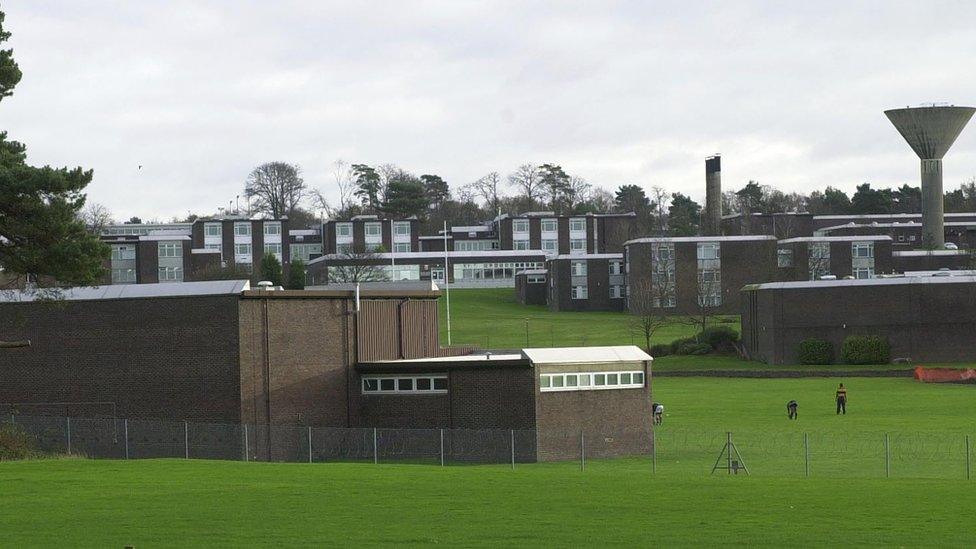
Four young soldiers died at Deepcut barracks between 1995 and 2002
The inquest also heard claims the Army had been "regularly informed of stresses and strains at Deepcut" and had chosen to ignore and suppress the information.
Mr Cooper said an anonymous letter "clearly written by an insider at the MoD" showed inquiries carried out by the Army had been "cursory and in very little detail".
Brig Coles said the letter seemed ill-informed.
"I'm always concerned if someone challenges my integrity but what they were saying is inaccurate," he told the hearing.
Mr Cooper told the inquest the Army had long been aware of the risks to training and recruitment caused by bullying and harassment.
He asked Brig Coles: "What comes first - the needs of the Army or the needs of the individual when it comes to welfare?"
Brig Coles replied: "The needs of the Army," but that recruits needed "to be equipped in every sense" for it to perform its job.
Later, when questioned by Mr Cooper about lists of incident records which included climbing over a security fence and under-age drinking, Brig Coles conceded "there were certainly incidents that were more serious".
The inquest, which is taking place without a jury, continues.
- Published26 February 2019
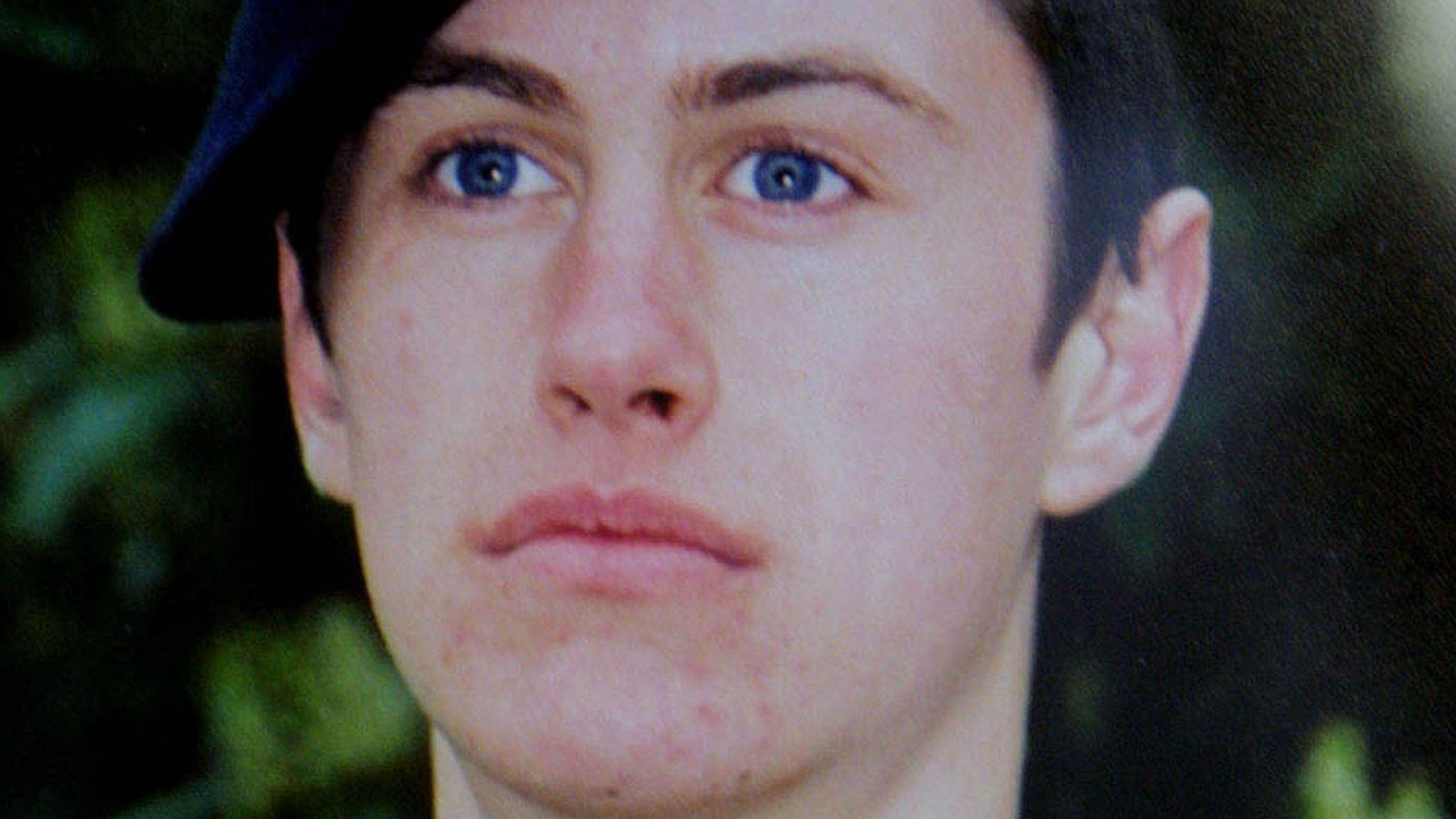
- Published26 February 2019

- Published20 July 2018

- Published20 June 2019
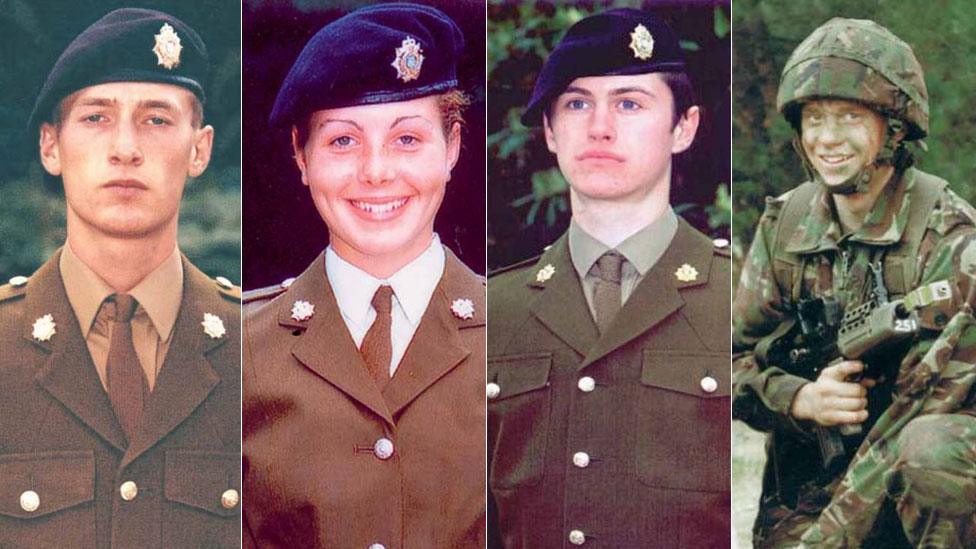
- Published3 June 2016
